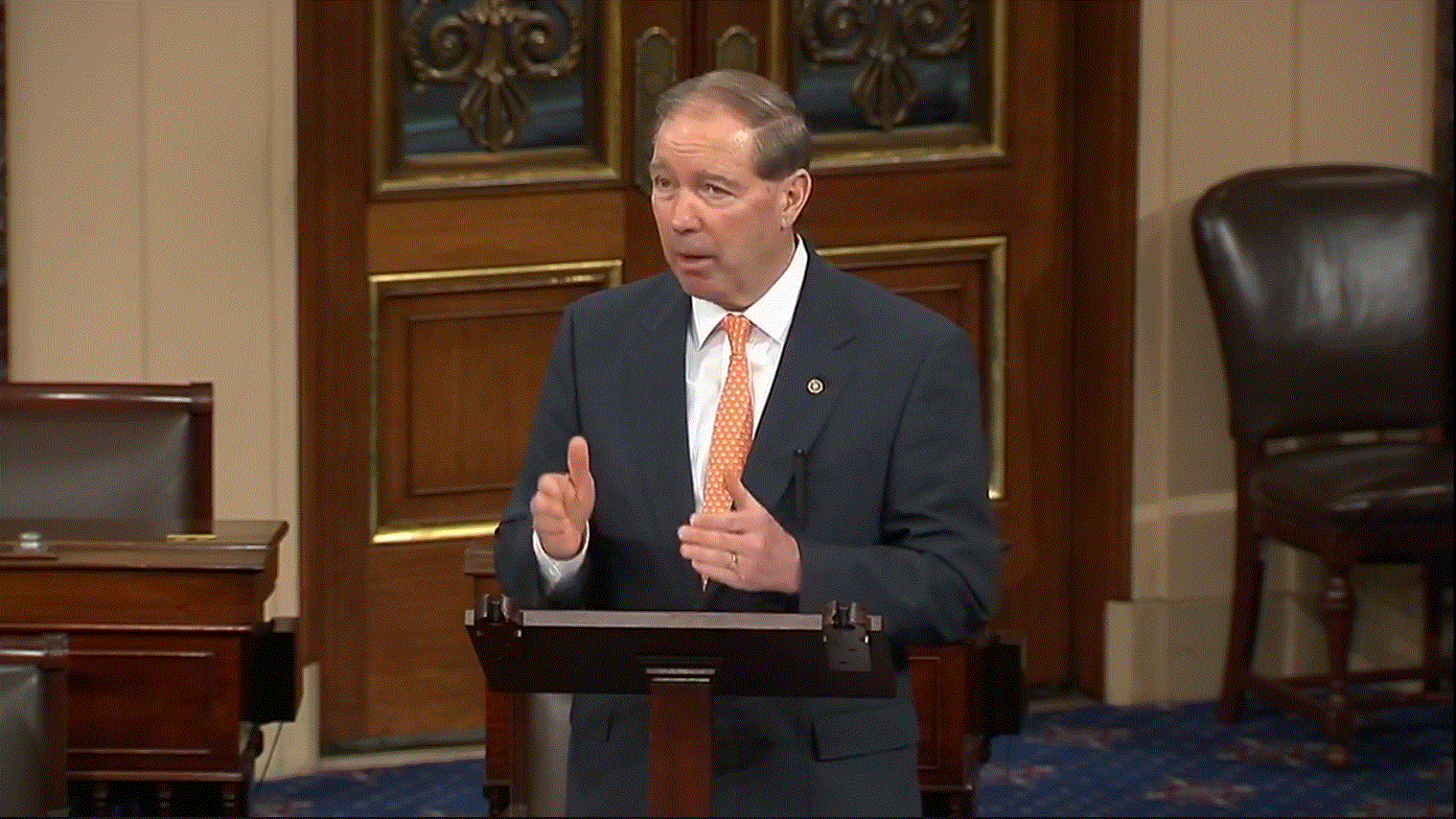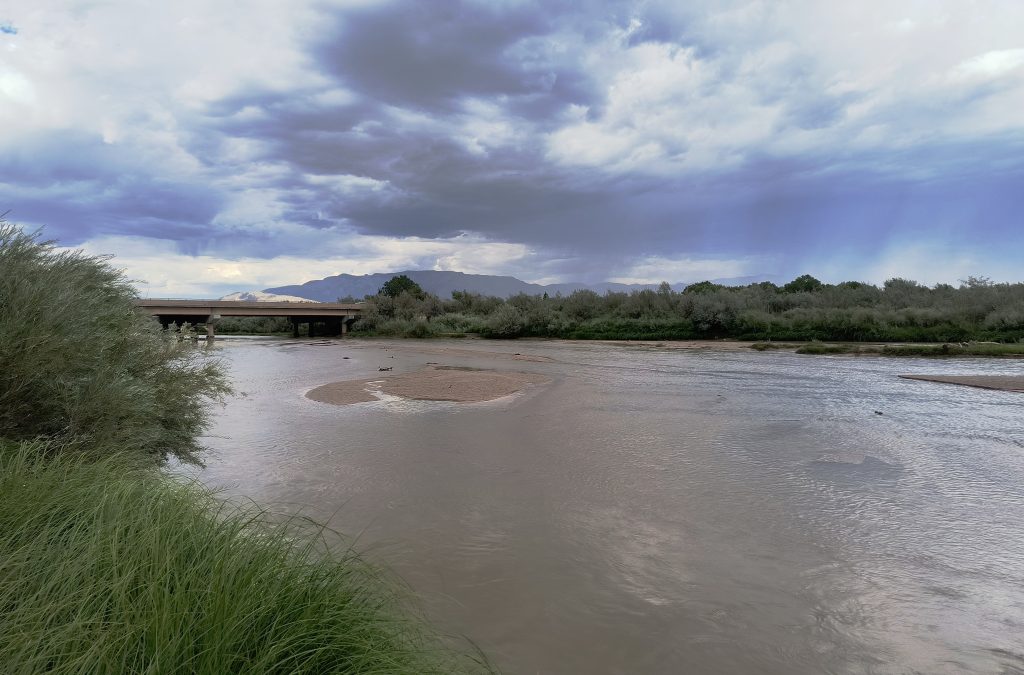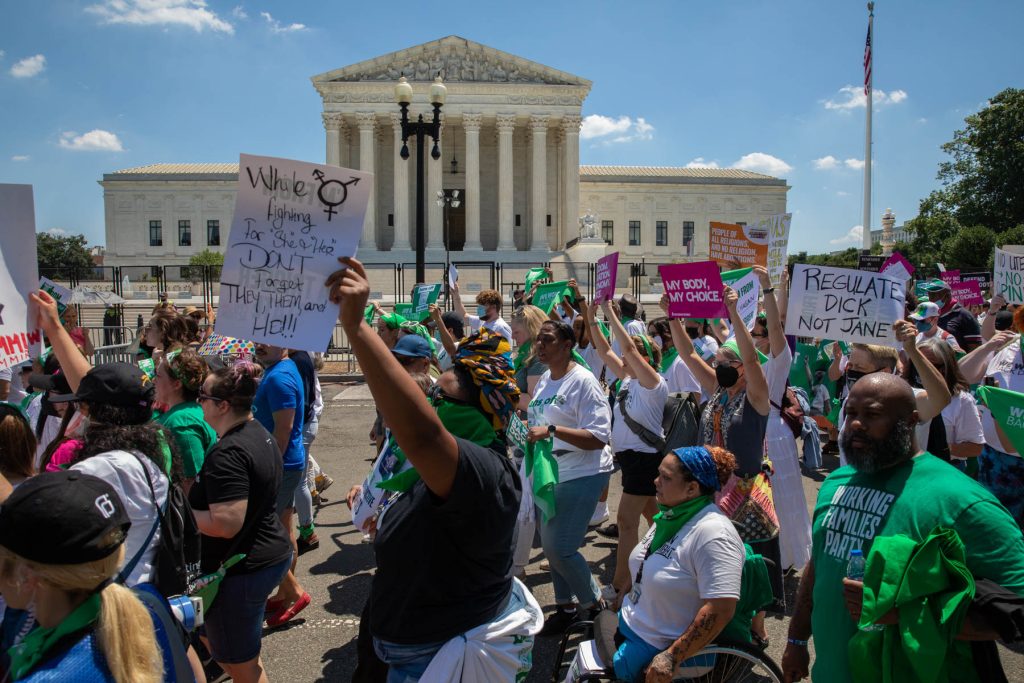One disabled Albuquerque woman, Jeanne Hamrick, said she would not be able to afford prescription drug costs if the U.S. Supreme Court overturns the Affordable Care Act during this judicial term.
Hamrick spoke during a live phone conference hosted by Democratic U.S. Senator Tom Udall to let average residents around the state talk about what losing the ACA would mean for them. The Supreme Court will hear California v. Texas on Nov. 10. The case challenges the constitutionality of the individual mandate and, with the likely confirmation of Judge Amy Coney Barrett establishing a new conservative bloc majority, the court could overturn the entire ACA.
Hamrick said that before the ACA went into effect in 2013, she was paying $100 each month for prescription medication on a social security budget. But now if the court overturns the ACA, Hamrick said she would reach the “donut hole.” The donut hole is a gap that Medicare Plan D recipients experienced before the ACA went into effect once a person reached the annual drug spending limit. Essentially, it’s a gap in insurance coverage for prescription drugs. If a person lands in the “donut hole,” they have to pay a certain percentage of both name-brand and generic drugs, according to WebMd.
“Now I take a medication that is so expensive, I would reach the donut hole every year. I can’t afford to pay for this medication out of pocket,” Hamrick said. “If the donut hole returns (if the court overturns the ACA), I don’t know how New Mexico seniors on fixed incomes like me will manage if they have to pay thousands out of pocket each month for necessary medication.”
Udall said the state would lose $1.8 billion in federal funding, “forcing us to make cuts to make up the difference.”
But some experts have said the state won’t be able to make up the difference and that Medicaid expansion, which was made possible because of the ACA, would likely be a part of the reductions in health care that would take place if the court rules that the ACA is unconstitutional.
Related: New SCOTUS conservative bloc could overturn ACA, with big impacts on NM
In addition, more than 800,000 New Mexicans could lose coverage because protections for preexisting conditions would be eliminated if the court decides the ACA is unconstitutional, Udall said.
Although Barrett did not respond to questions about the ACA during her U.S. Senate confirmation hearings, she has said in her legal writings as a University of Notre Dame law professor that she considers the ACA to be unconstitutional. Republicans on the U.S. Senate Judiciary Committee voted unanimously to confirm her Thursday. Democrats on the committee refused to sit for the vote. But she is expected to be confirmed by at least a simple majority in the U.S. Senate on Monday.
Others who spoke during the press call included two medical professionals – Dr. Val Wangler, chief medical officer for Rehobeth McKinley Health Care Services and Christina Campos, a Guadalupe County Hospital administrator.
Wangler, who is also a family physician, said that the way people put off health care at the beginning of the pandemic, and are now sometimes suffering the consequences of that, is a “mirror,” of what would happen if the ACA is overturned.
“If the ACA is rolled back, patients will not have the capacity to seek care. We’re now seeing patients with diabetes that has gotten out of control during the pandemic, or foot infections, heart failure patients. If they’d seen their primary care doctor they could have managed that in an outpatient setting. But they were reluctant to come in for care and we’re seeing the rates for hospitalizations we don’t normally,” she said.
As a physician and hospital administrator in Gallup, she spoke about how the ACA has benefited the Native population in the state.
“We treat a large number of Native Americans,” Wangler said. “The ACA has really given them a lot more choice in where they prefer to obtain healthcare. It will be a real loss for the Native population if any changes are made to the ACA.”
Campos said the ACA has had a “huge impact,” on rural areas which tend to be “older, poorer and less healthy.”
“The ACA really made it easier for people to access quality health care without getting indebted,” Campos said.
A small business owner in Las Cruces, Ariana Parsons, said the coffee shop she and her husband run in downtown Las Cruces would have had to go out of business if Medicaid expansion, through the ACA, had not paid for three surgeries her husband had to have on his heel in recent years.
“Our company would go bankrupt and all 13 people (they employ) would lose their jobs. Our business would have gone under if we’d had to pay for that surgery,” she said.
Lisa Trujillo, a self-employed weaver from Chimayo, said her grown daughter gets behavioral health care through the insurance marketplace. But Trujillo worries that if the insurance marketplace, too, is eliminated by the court’s overturning the ACA, then her daughter may have to come work for her and her husband in their weaving business.
Udall said that U.S. Supreme Court Chief Justice John Roberts, who wrote the majority opinion in 2012 during a previous challenge to the ACA, argued against Congress’ use of the Commerce Clause to enact the individual mandate. Because of that, Congress is now “on shaky ground,” he said when asked what Democrats could do if the court overturns the ACA.
“We’re fighting as hard as we can to show the American people what’s at stake in this fight. We need Senate Republicans to listen and we need New Mexicans to make their voices heard,” Udall said.
Correction: This story misspelled Dr. Val Wangler’s name as Wrangler. This has been corrected.



















